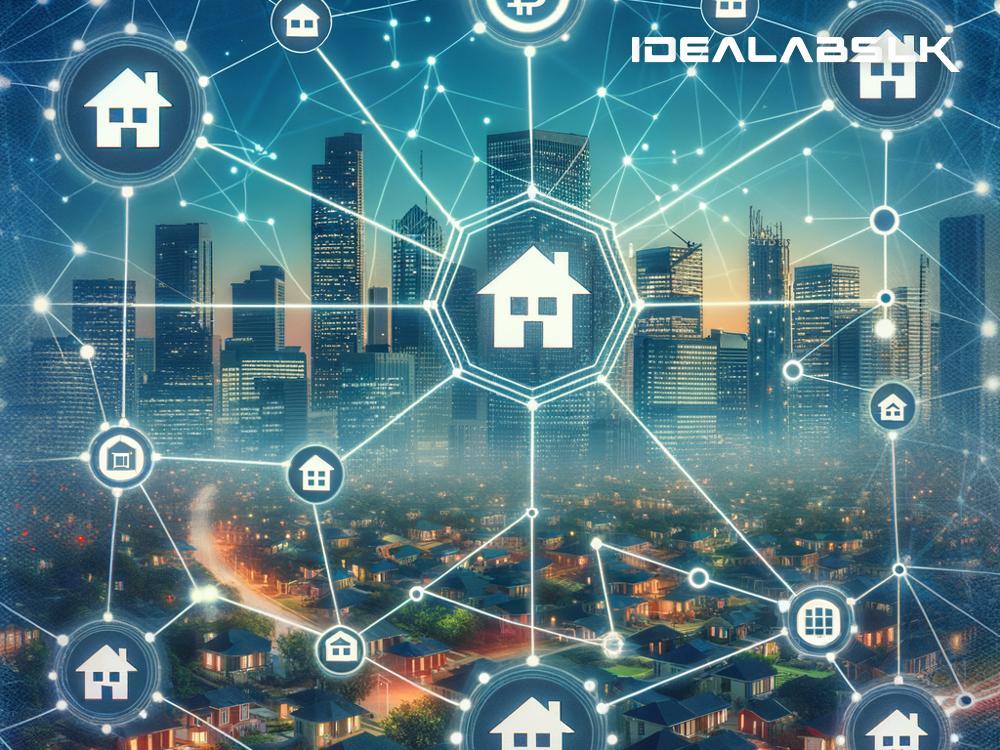Blockchain in Real Estate: Elevating Supply Chain Transparency
In an era where transparency and trust are paramount, the real estate sector is undergoing a transformation, with Blockchain technology at the forefront of this change. At first glance, Blockchain might seem like a buzzword linked with cryptocurrencies like Bitcoin, but its implications stretch far beyond. It holds the potential to revolutionize the real estate industry, particularly by enhancing the transparency of the supply chain. Let’s break down how Blockchain is making this possible in simple English.
Understanding Blockchain
Imagine a notebook where you keep adding new entries, and this notebook is not held by one person but is duplicated across a network of computers. This is the essence of Blockchain. Every time a new transaction happens, a record of that transaction is added to every participant's notebook. This makes it extremely difficult to alter information without everyone knowing, thereby ensuring a high level of transparency and security.
The Real Estate Supply Chain: A Quick Overview
The real estate supply chain encompasses all the steps involved from the moment a property is conceived as an idea until it becomes a home or a commercial space accessible to people. This process includes land acquisition, planning, construction, sales, and after-sales services. Each step involves multiple stakeholders, including developers, contractors, legal teams, regulatory authorities, and finally, the buyers. The complexity and involvement of numerous parties make the supply chain opaque and sometimes inefficient.
The Blockchain Solution
Blockchain technology is uniquely positioned to address these challenges through its inherent features. Here’s how:
-
Immutable Records: Blockchain creates an unchangeable ledger of transactions. This means once a property detail or a contractual agreement is entered into the ledger, it cannot be altered or deleted. This significantly reduces the chances of fraud and discrepancies, making the entire supply chain more transparent.
-
Smart Contracts: These are self-executing contracts with the terms directly written into code. In real estate, smart contracts can automate and streamline processes like property transactions, verifications, and payments without the need for intermediaries. This not only makes transactions faster and cheaper but also reduces the likelihood of manual errors or biases.
-
Decentralization: Unlike traditional record-keeping systems, Blockchain operates on a peer-to-peer network that is decentralized. This means there’s no single point of control or failure, adding an extra layer of security and transparency. Participants in the real estate supply chain, from developers to buyers, have access to the same information, fostering trust among all parties.
-
Efficient Transactions: Buying or selling real estate involves heaps of paperwork and a series of approvals from multiple entities. Blockchain can significantly cut down on this bureaucracy by providing a single, secure, and trustworthy source of truth for property histories, title details, and transaction histories. This can reduce closing times from months to a matter of days or even hours.
The Real Change in Real Estate
Integrating Blockchain into the real estate supply chain can fundamentally change how we think about property transactions and management. For instance, it can make land registries far more reliable and transparent. In many parts of the world, land registry fraud is a significant issue, with documents being tampered with or lost. A Blockchain-based registry system can eliminate such problems, ensuring land and property ownership records are secure and easily verifiable.
Moreover, Blockchain can foster global investments in real estate by simplifying cross-border transactions. With transparent and reliable property data available on a Blockchain, international investors can make informed decisions without being physically present or going through lengthy verification processes.
A Path Forward
The journey of incorporating Blockchain into the real estate sector is not without challenges. Regulatory, technical, and adoption hurdles exist. Nonetheless, the potential benefits in terms of transparency, efficiency, and trust are too significant to ignore.
Forward-thinking companies and governments are already experimenting with Blockchain for land registries, property listings, and transaction processes. As the technology matures and more participants come onboard, we can expect a new era in real estate — one marked by unparalleled transparency, reduced fraud, and smoother transactions.
In Conclusion
Blockchain technology promises to bring a level of transparency to the real estate supply chain that was previously unimaginable. By creating a secure, immutable, and decentralized ledger of all transactions and interactions, Blockchain can reduce fraud, speed up transactions, and build trust among all parties involved. The road ahead is promising, and as the real estate industry embraces Blockchain, we stand on the brink of a more transparent, efficient, and secure future in property dealings.

